O Καθηγητής Θεόδωρος Κεβρεκίδης, Δημοκρίτειο Πανεπιστήμιο Θράκης και η Καθηγήτρια Παρασκευή Μαλέα, Αριστοτέλειο Πανεπιστήμιο Θεσσαλονίκης θα παρουσιάσουν, μέσα από μια σειρά βιωματικών εργαστηρίων, τα λιβάδια της Ποσειδωνίας.
Η δράση αυτή εντάσσεται στο πλαίσιο του ερευνητικού έργου «Εμπλέκοντας μαθητές Α/βάθμιας και Β/βάθμιας Εκπαίδευσης στις Επιστήμες της Θάλασσας», το οποίο υποστηρίχθηκε από το Ελληνικό Ίδρυμα Έρευνας και Καινοτομίας (ΕΛ.ΙΔ.Ε.Κ.) στο πλαίσιο της 3ης Προκήρυξης της Δράσης «Επιστήμη και Κοινωνία» με τίτλο «Κόμβοι Έρευνας, Καινοτομίας και Διάχυσης»
Εξερευνώντας τα λιβάδια της Ποσειδωνίας
Εργαστήρια
Κατά τον τελευταίο αιώνα, οι ανθρώπινες δραστηριότητες επηρέασαν αρνητικά το θαλάσσιο περιβάλλον. Οι πολίτες, προκειμένου να συνεχίσουν να επωφελούνται από τις υπηρεσίες και τα αγαθά του, πρέπει να γνωρίζουν τα μυστικά του και τον αντίκτυπο των πράξεων τους σε αυτό.
Το πρόγραμμα θα υλοποιηθεί μέσα από βιωματικά εργαστήρια σε εσωτερικό χώρο, καθώς και με την παρουσίαση και ανάλυση δειγμάτων.
Η δράση εντάσσεται στα πρωινά εκπαιδευτικά προγράμματα πριν από το φεστιβάλ
Ηλικιακές ομάδες:
1. Νήπια έως Δευτέρα Δημοτικού, 2. Τρίτη έως Έκτη Δημοτικού. 3. Γυμνάσιο / Λύκειο.
• Δύο διδακτικές ώρες ανά ηλικιακή ομάδα.
• Την πρώτη από τις δύο ημέρες, οι δράσεις θα αφορούν τις δύο πρώτες ηλικιακές ομάδες και την δεύτερη ημέρα τις άλλες δύο (Γυμνάσιο, Λύκειο).
Ομιλία – παρουσίαση από τον Καθηγητή Θεόδωρο Κεβρεκίδη και την Καθηγήτρια Παρασκευή Μαλέα, Σάββατο 12/10 στις 17.00
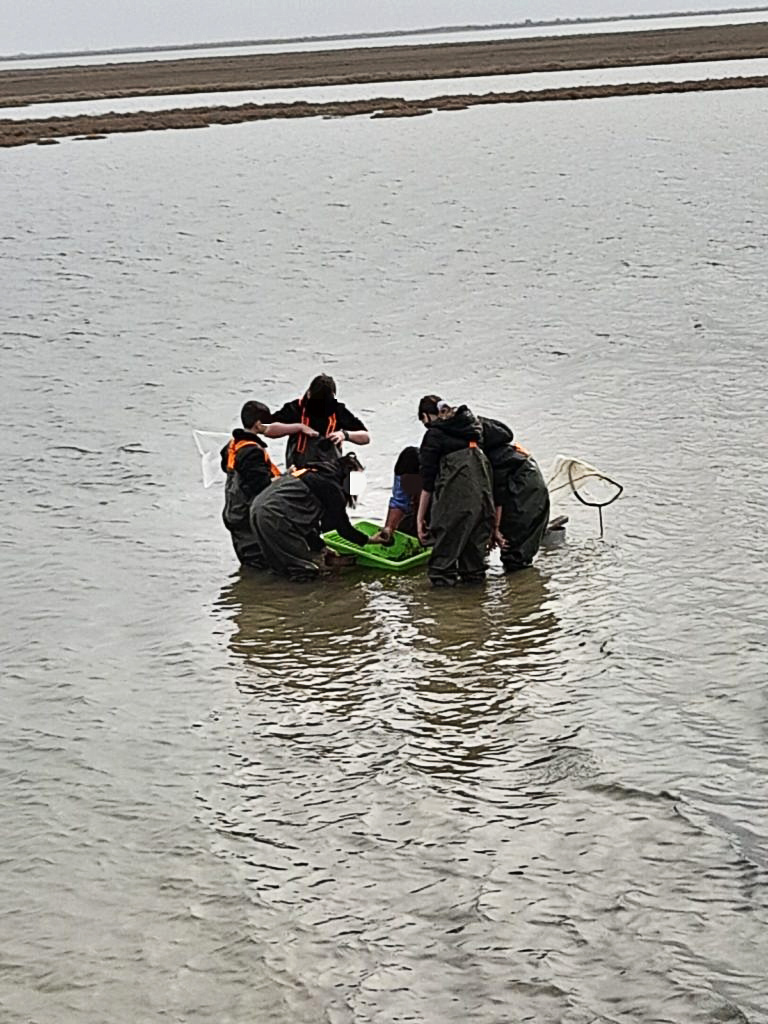
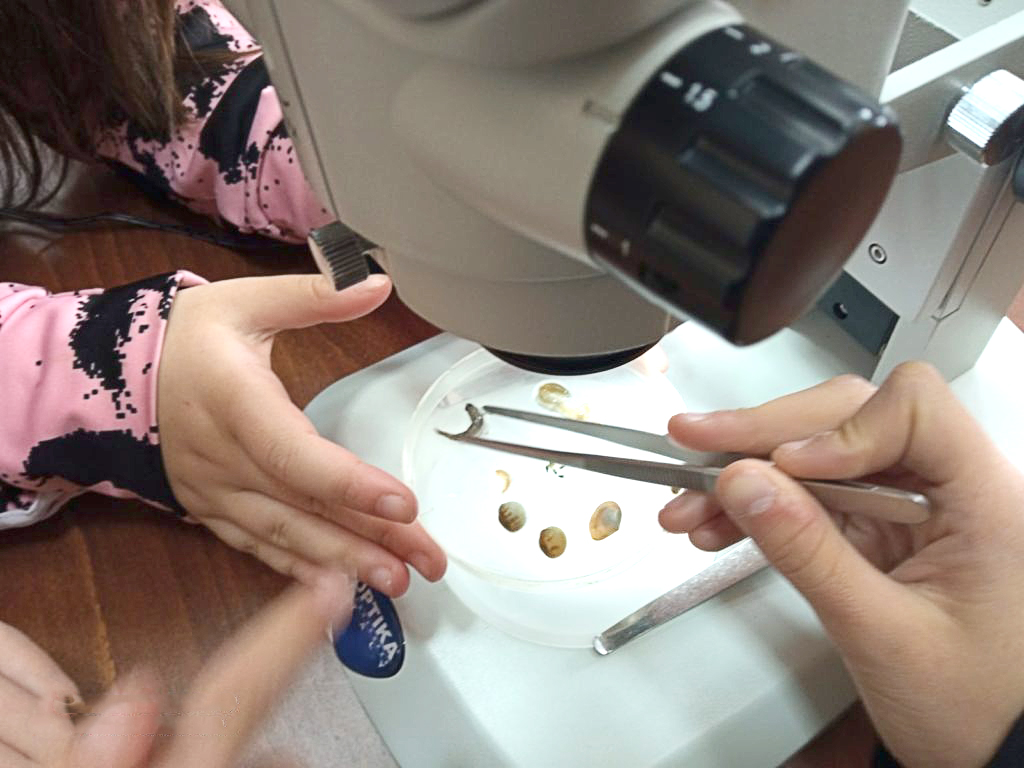
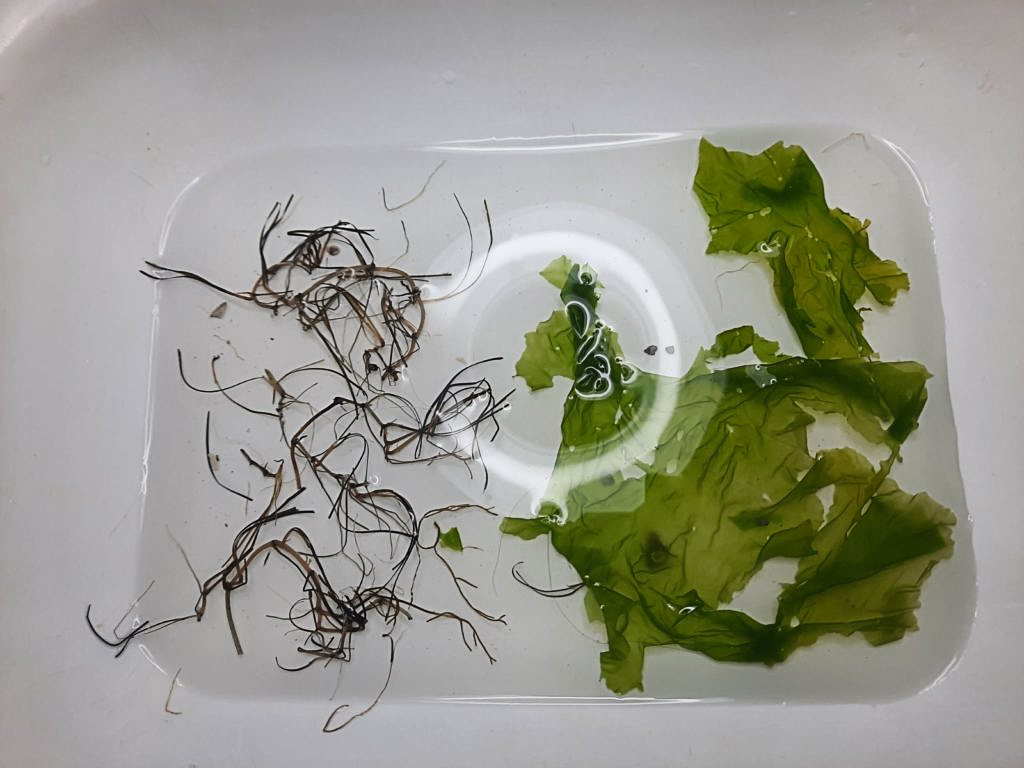
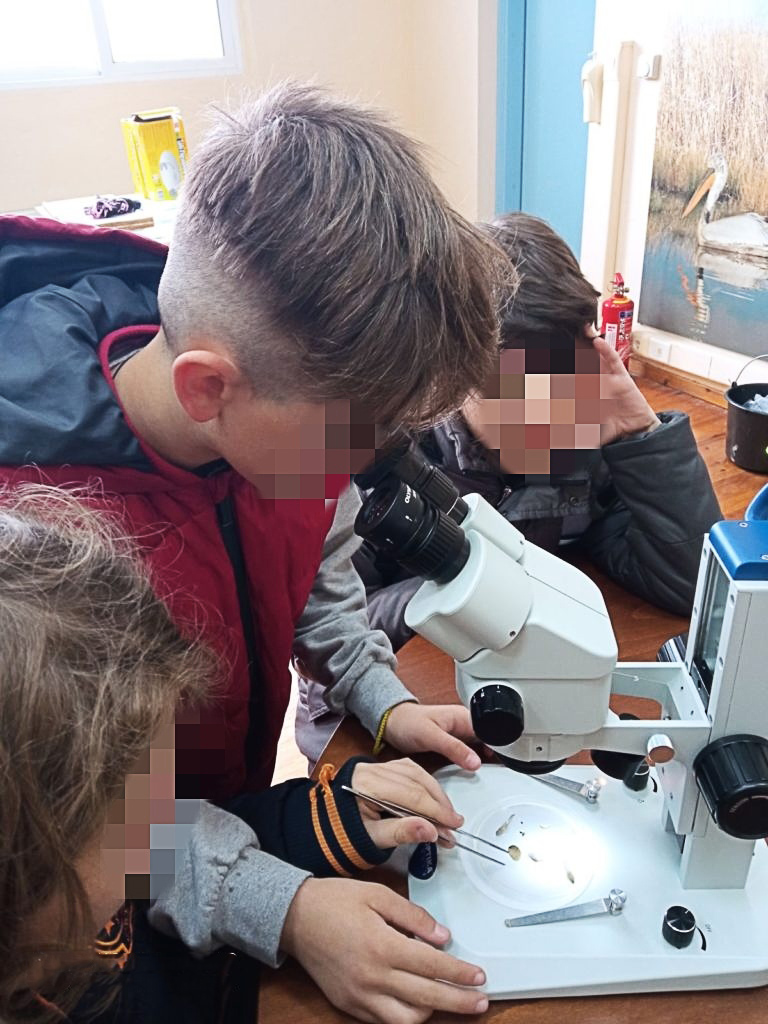
Το Δημοκρίτειο Πανεπιστήμιο Θράκης συγκαταλέγεται μεταξύ των μεγαλύτερων Πανεπιστημίων της χώρας από άποψη ενεργού φοιτητικού πληθυσμού. Το Δ.Π.Θ. αναπτυγμένο γεωγραφικά σε όλη την Περιφέρεια Ανατολικής Μακεδονίας και Θράκης, με 10 Σχολές, 28 Τμήματα, και πλειάδα Προγραμμάτων Μεταπτυχιακών Σπουδών, με φοιτητικό πληθυσμό περίπου 42.000 (προπτυχιακοί φοιτητές, μεταπτυχιακοί φοιτητές και υποψήφιοι διδάκτορες) και με ερευνητικό και διδακτικό προσωπικό που ξεπερνά τα 700 άτομα αποτελεί το μοναδικό πανεπιστημιακό ίδρυμα στην Περιφέρεια της Ανατολικής Μακεδονίας – Θράκης.Η διάρθρωση των Προγραμμάτων Σπουδών που παρέχει, καλύπτει την πλειονότητα των σύγχρονων επιστημονικών πεδίων με την Σχολή Επιστημών Γεωπονίας και Δασολογίας στην Ορεστιάδα, τις Σχολές Επιστημών Υγείας και Επιστημών Αγωγής στην Αλεξανδρούπολη, τις Σχολές Νομικής, Κλασικών & Ανθρωπιστικών Επιστημών, Κοινωνικών Πολιτικών & Οικονομικών Επιστημών και Φυσικής Αγωγής & Αθλητισμού στην Κομοτηνή, την Πολυτεχνική Σχολή στην Ξάνθη, τις Σχολές Θετικών Επιστημών και Σχολή Διοικητικής Επιστήμης και Λογιστικής στην Καβάλα.
Ελληνικό Ίδρυμα Έρευνας και Καινοτομίας (ΕΛ.ΙΔ.Ε.Κ.)
Το Ελληνικό Ίδρυμα Έρευνας και Καινοτομίας (ΕΛ.ΙΔ.Ε.Κ.) από την ίδρυσή του το 2016 μέχρι και σήμερα συμβάλλει σημαντικά στην προαγωγή της Έρευνας και της Καινοτομίας στην Ελλάδα, έχοντας δημοσιεύσει μέχρι σήμερα είκοσι έξι (26) Προκηρύξεις. Ο ρόλος του έχει αποδειχθεί ότι είναι καθοριστικός για την εξέλιξη και ενίσχυση της βασικής έρευνας στη χώρα. Αυτό που κάνει το ΕΛ.ΙΔ.Ε.Κ. να ξεχωρίζει είναι το γεγονός ότι, για πρώτη φόρα, η ίδια η επιστημονική και ακαδημαϊκή κοινότητα συμμετέχει στη διαμόρφωση της ερευνητικής πολιτικής της χώρας, χωρίς να θέτει θεματικούς και γεωγραφικούς περιορισμούς.
Το ΕΛ.ΙΔ.Ε.Κ. στηρίζει τις ερευνητικές δραστηριότητες και τεχνολογικές εφαρμογές που προκύπτουν από τη συστηματική έρευνα που γεννά η επιστημονική περιέργεια, καθώς και το επιστημονικό δυναμικό της χώρας, με στόχο να συμβάλλει στην ανάσχεση του φαινομένου εκροής λαμπρών Ελλήνων και Ελληνίδων επιστημόνων στο εξωτερικό.
Για την επίτευξη του σκοπού και των στόχων του, το ΕΛ.ΙΔ.Ε.Κ. προκηρύσσει Υποτροφίες για Υποψήφιους/ες Διδάκτορες/ισσες, Ερευνητικά Έργα για την ενίσχυση Μεταδιδακτορικών Ερευνητών/τριών, Μελών ΔΕΠ και Ερευνητών/τριών, Δράσεις διασύνδεσης της Επιστήμης με την Κοινωνία και Εμβληματικών Δράσεων, καθώς επίσης χρηματοδοτεί την προμήθεια ερευνητικού εξοπλισμού μεγάλης αξίας, έχοντας ως μοναδικό κριτήριο την επιστημονική ποιότητα και αριστεία.
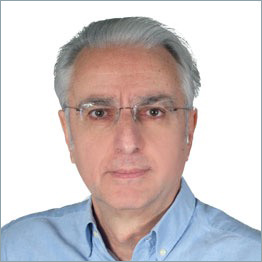 Ο Θεόδωρος Κεβρεκίδης, Θαλάσσιος Βιολόγος, είναι Καθηγητής στο Δημοκρίτειο Πανεπιστήμιο Θράκης. Είναι Διευθυντής του Εργαστηρίου Περιβαλλοντικής Έρευνας και Εκπαίδευσης του Παιδαγωγικού Τμήματος Δημοτικής Εκπαίδευσης του Δημοκρίτειου Πανεπιστημίου Θράκης.
Τα τρέχοντα ερευνητικά ενδιαφέροντά του εστιάζονται στην οικολογία και οικοφυσιολογία των θαλάσσιων αγγειόσπερμων και μακροφυκών, στη βιολογία των θαλάσσιων μακροασπόνδυλων, τη δομή και τη δυναμική των θαλάσσιων μακροζωοβενθικών συνευρέσεων και την εκτίμηση της οικολογικής κατάστασης των παράκτιων και μεταβατικών υδάτων με τη χρήση βιοτικών δεικτών.
Η έρευνά του επικεντρώνεται επίσης στον Γραμματισμό στις Επιστήμες της Θάλασσας.
Ο Θεόδωρος Κεβρεκίδης, Θαλάσσιος Βιολόγος, είναι Καθηγητής στο Δημοκρίτειο Πανεπιστήμιο Θράκης. Είναι Διευθυντής του Εργαστηρίου Περιβαλλοντικής Έρευνας και Εκπαίδευσης του Παιδαγωγικού Τμήματος Δημοτικής Εκπαίδευσης του Δημοκρίτειου Πανεπιστημίου Θράκης.
Τα τρέχοντα ερευνητικά ενδιαφέροντά του εστιάζονται στην οικολογία και οικοφυσιολογία των θαλάσσιων αγγειόσπερμων και μακροφυκών, στη βιολογία των θαλάσσιων μακροασπόνδυλων, τη δομή και τη δυναμική των θαλάσσιων μακροζωοβενθικών συνευρέσεων και την εκτίμηση της οικολογικής κατάστασης των παράκτιων και μεταβατικών υδάτων με τη χρήση βιοτικών δεικτών.
Η έρευνά του επικεντρώνεται επίσης στον Γραμματισμό στις Επιστήμες της Θάλασσας.  Η Παρασκευή Μαλέα είναι Καθηγήτρια στο Τμήμα Βιολογίας του Αριστοτελείου Πανεπιστημίου Θεσσαλονίκης με διδακτορικό στη Θαλάσσια Βιολογία.
Είναι Διευθύντρια του Εργαστηρίου Βοτανικής του Αριστοτελείου Πανεπιστημίου Θεσσαλονίκης. Τα ερευνητικά ενδιαφέροντά της αφορούν την οικολογία και οικοφυσιολογία των θαλάσσιων αγγειόσπερμων και μακροφυκών.
Η έρευνά της επίσης επικεντρώνεται στην αξιολόγηση της οικολογικής κατάστασης των παράκτιων και μεταβατικών υδάτων με τη χρήση βιοτικών δεικτών που βασίζονται σε θαλάσσια αγγειόσπερμα (π.χ. Posidonia oceanica).
Η έρευνά της επικεντρώνεται επίσης στη συσσώρευση μετάλλων σε θαλάσσια αγγειόσπερμα και μακροφύκη, καθώς και σε μορφολογικές, φυσιολογικές και κυτταρικές αποκρίσεις αυτών των οργανισμών στο στρες που προκαλείται από ανθρωπογενείς χημικές ουσίες και στην ανίχνευση βιοδεικτών και βιομαρτύρων για την αξιολόγηση της ποιότητας του θαλάσσιου περιβάλλοντος.
Η Παρασκευή Μαλέα είναι Καθηγήτρια στο Τμήμα Βιολογίας του Αριστοτελείου Πανεπιστημίου Θεσσαλονίκης με διδακτορικό στη Θαλάσσια Βιολογία.
Είναι Διευθύντρια του Εργαστηρίου Βοτανικής του Αριστοτελείου Πανεπιστημίου Θεσσαλονίκης. Τα ερευνητικά ενδιαφέροντά της αφορούν την οικολογία και οικοφυσιολογία των θαλάσσιων αγγειόσπερμων και μακροφυκών.
Η έρευνά της επίσης επικεντρώνεται στην αξιολόγηση της οικολογικής κατάστασης των παράκτιων και μεταβατικών υδάτων με τη χρήση βιοτικών δεικτών που βασίζονται σε θαλάσσια αγγειόσπερμα (π.χ. Posidonia oceanica).
Η έρευνά της επικεντρώνεται επίσης στη συσσώρευση μετάλλων σε θαλάσσια αγγειόσπερμα και μακροφύκη, καθώς και σε μορφολογικές, φυσιολογικές και κυτταρικές αποκρίσεις αυτών των οργανισμών στο στρες που προκαλείται από ανθρωπογενείς χημικές ουσίες και στην ανίχνευση βιοδεικτών και βιομαρτύρων για την αξιολόγηση της ποιότητας του θαλάσσιου περιβάλλοντος. 




